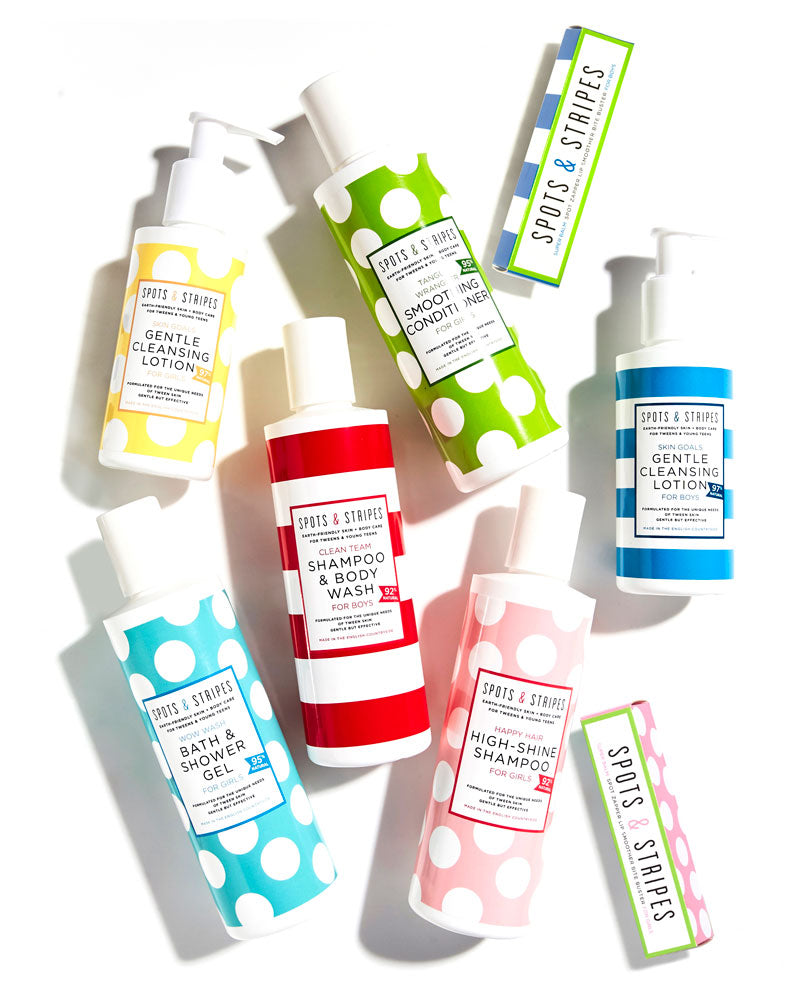Lucinda Miller, our favourite child nutrition expert and naturopath, gives us her best tips for boosting immunity and easing new term anxiety for teens and tweens.
As the school gates swing open and the pencil cases get packed, it’s not just new timetables and fresh uniforms we need to think about. September is a golden opportunity to help our tweens and teens start the term feeling strong, focused and emotionally balanced. And guess what? It all begins at home - with the food they eat, the sleep they get, and the calm we create.
Food First: Fuel for Focus & Immunity
A healthy, varied diet is one of the cornerstones of growing robust and happy youngsters. The right food choices nourish their brain cells, support their immune system, and feed their gut microbiome - all essential for focus, mood, and keeping those pesky infections at bay.
Since school lunches are often out of our control, it’s the meals and snacks at home that really count. Think of breakfast, after-school snacks, and supper as your three golden opportunities to pack in the goodness.
Breakfast ideas to kickstart the day:
- Scrambled eggs on sourdough toast with cooked tomatoes
- Porridge loaded with berries and a swirl of nut butter
- Natural yoghurt with granola and chopped fruit
After-school snacks to refuel and recharge:
- Homemade flapjacks or energy balls
- Nut butter on oatcakes
- A smoothie with banana, berries and kefir
Supper to soothe and strengthen:
This is your chance to load up on protein, veggies, herbs and spices. Think colourful stir-fries, hearty stews or traybakes with sweet potato, chicken and broccoli. If your child is on ADHD meds or tends to skip lunch, they might need an extra mini meal when they get home, followed by a proper supper later so they get all the nutrients they need.
Sleep: The Secret Superpower
Good quality sleep is a game-changer for your youngsters. Just one hour less sleep can lead to sugar cravings, poor concentration, and a grumpy mood. Chronic sleep deprivation can even suppress the immune system, making kids more vulnerable to viruses and tummy bugs.
Here’s how to help them wind down and get more sleep:
- Morning light: A walk to school or time outside before lessons helps regulate melatonin, the sleep hormone.
- Evening calm: Switch off blue-light screens 90 minutes before bed (TV is fine), run a warm bath, play soothing music and encourage reading, a game of cards or crafting.
- Sleepy foods: Cherries naturally boost melatonin, and magnesium-rich foods like leafy greens, nuts and seeds can help them fall asleep and stay asleep. You can also find magnesium in gentle sleep supplements combined with calming botanicals such as lemon balm, ashwagandha and chamomile.
Immunity: Building Resilience from the Inside Out
We’ve all learned through the pandemic that it’s not just the virus itself, but how our immune system responds to it that counts. The good news? You can help shape your child’s immune response through nutrition and lifestyle.
Top nutrients to support immunity:
- Vitamin D: If your child didn’t get much sun this summer, or has darker skin, consider a supplement. It’s vital for immune function and mood.
- Vitamin C: Found in berries, peppers, parsley and even potatoes. A squeeze of lemon or lime on meals adds a zesty immune boost.
- Zinc: Essential for growth, learning and immunity. It’s also key for taste and smell - low zinc levels can make kids much fussier eaters. Good sources include meat, fish, shellfish, eggs, dairy, nuts and seeds.
- Elderberry: Nature’s antiviral hero. If you missed the growing season, don’t worry, there are brilliant elderberry syrups and lozenges available.
- Honey: The NHS recommends honey for coughs and colds. Jarrah honey is a favourite in our house as it tastes like toffee and has powerful antimicrobial properties. Add it to toast, smoothies, or straight off the spoon!
Emotional Wellbeing: Easing the Wobbles
Starting a new school year can stir up anxious thoughts, especially for sensitive souls or those facing big transitions. A calm home environment can work wonders—when we’re organised and grounded, our kids often feel more secure too.
Simple ways to support their emotional health.
- Journaling: Encourage them to write down their worries, along with a positive affirmation or something they’re grateful for.
- Drawing: A great outlet for those who find words tricky.
- Supplements: Saffron can help with high anxiety, theanine promotes calm, and lion’s mane supports brain clarity - especially useful after the long summer break.
So, as the school term begins, let’s nourish our tweens and teens with good food, restful sleep, and emotional support. These small daily rituals can make a big difference in helping them feel strong, resilient, and ready to thrive. Here’s to a happy, healthy start to the school year!
Lucinda Miller is the clinical lead of NatureDoc and runs a team of UK-wide nutritional therapists specialising in family nutrition and stocks the Spots & Stripes range at www.naturedoc.shop. She has been practising as a naturopath for 30 years, qualified in Functional Medicine and is author of the bestselling cookbooks Brain Brilliance, The Good Stuff and I Can’t Believe It’s Baby Food. She is the mum of three and lives in Wiltshire.
References
- NIH Vitamin D Fact Sheet for Health Professionals
- NIH Zinc Fact Sheet for Health Professionals
- NIH Iron Fact Sheet for Health Professionals
- Anti-influenza activity of elderberry (Sambucus nigra)
- A Review of the Antiviral Properties of Black Elder (Sambucus nigra L.) Products
- L-Theanine: properties, synthesis and isolation from tea
- The effects of L-theanine (Suntheanine®) on objective sleep quality in boys with attention deficit hyperactivity disorder (ADHD): a randomized, double-blind, placebo-controlled clinical trial
- Magnesium Status and Stress: The Vicious Circle Concept Revisited
- The Effects of Magnesium Supplementation on Subjective Anxiety and Stress—A Systematic Review
- The Role and the Effect of Magnesium in Mental Disorders: A Systematic Review
- Crocus sativus L. Versus Methylphenidate in Treatment of Children with Attention-Deficit/Hyperactivity Disorder: A Randomized, Double-Blind Pilot Study
- The Effect of Crocus sativus L. and Its Constituents on Memory: Basic Studies and Clinical Application
- The effects of twenty-one nutrients and phytonutrients on cognitive function: A narrative review
- Medicinal properties of Hericium erinaceus and its potential to formulate novel mushroom-based pharmaceuticals
- Neurohealth Properties of Hericium erinaceus Mycelia Enriched with Erinacines





